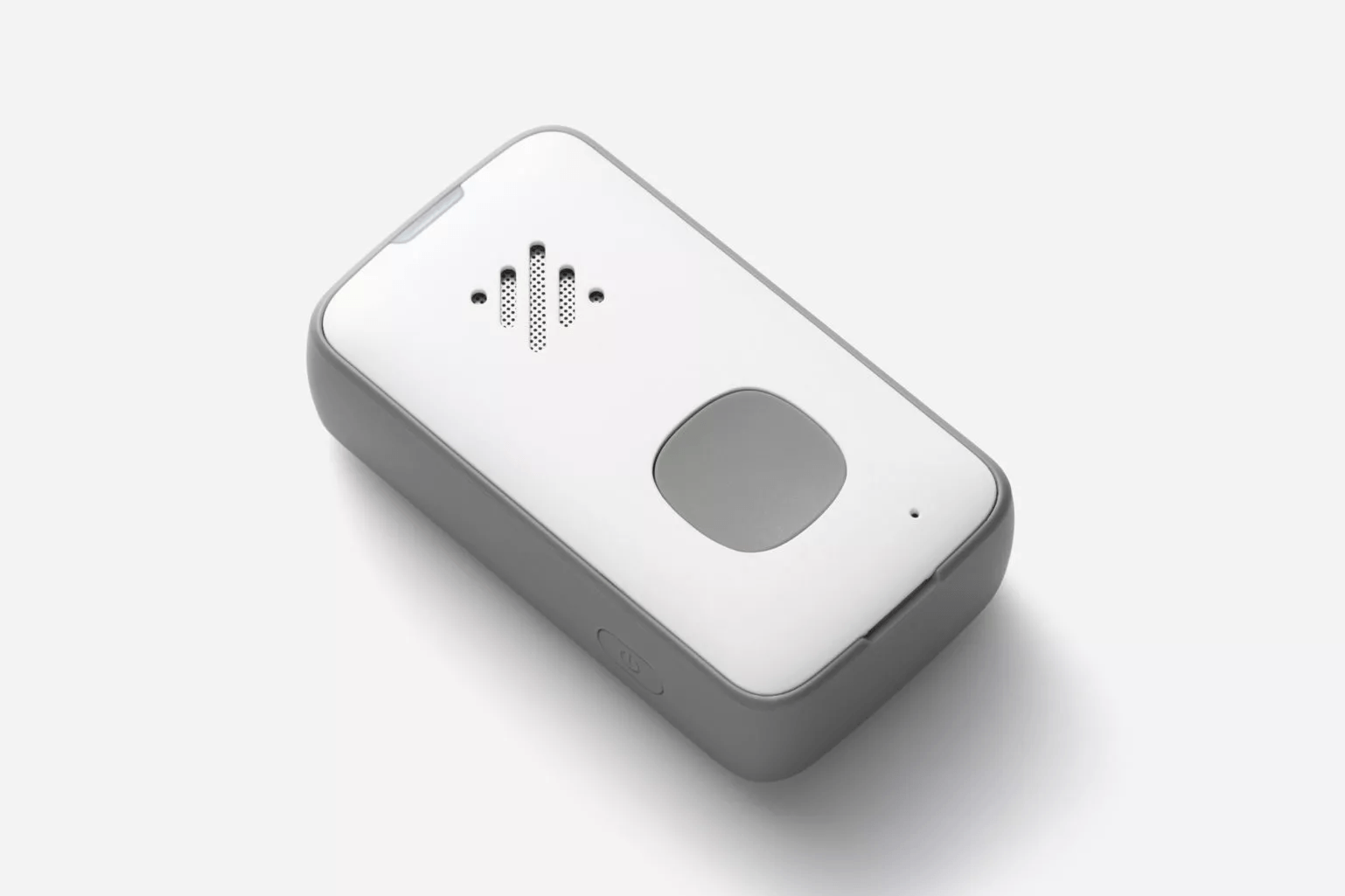Limited Time Offer - Try Numactive Medical Alert Free for 30 Days - Call 1-855-953-7333
Maintain an independent and healthy lifestyle with Numactive.
We cater to the unique needs of aging, active seniors by providing around the clock medical alert coverage to those at risk of falling.
How It Works
1. Press Button
1. Press Button
Press the personal help button to send an emergency alert to numactive. Fall Detection pendants can automatically send an alert if a fall occurs.
2. We Respond
2. We Respond
Our trained monitoring professionals will communicate over two-way voice to get the help that is needed.
Personal Safety on the Job
We're a top choice among travel nurses and other medical professionals.
Hear why nurses choose to be protected by the 24/7 protection of OnTheGo Lite:
Choose Numactive.
Choose Freedom.
Contact
Numactive
Today
to discuss how we provide your family peace of mind with Proactive Fall Solutions, Mobile Medical Alerts, In Home Medical Alerts, and Cell Based Medical Alerts.
Thousands of North Americans have trusted Numactive with their medical alert needs. Experience the difference you receive with Numactive.
Looking to protect a loved one?book a free personal consultation
EXPERT
Corner
Advice, Recommendations, Information & More

In an era where technology is revolutionizing every aspect of our lives, electronic security has extended its reach to include the healthcare sector. Medical alert systems have become an invaluable tool for ensuring the safety and well-being of seniors and individuals with medical conditions. With a plethora of options available on the market, choosing the right medical alert system can be a daunting task. This blog post aims to guide you through the process of navigating the various options and comparing different medical alert systems to make an informed decision. Understanding the Basics: Before delving into the comparison, it's essential to understand the basic components and functionalities of medical alert systems. These devices typically consist of a wearable help button and a base station. When the help button is pressed, a signal is sent to the base station, which then connects to a monitoring center. The monitoring center assesses the situation and takes appropriate action, whether it's contacting emergency services or notifying designated caregivers. Now, let's explore some key features and factors to consider when comparing different medical alert systems: Wearable Options: Look for systems that offer a variety of wearable options, such as pendants, wristbands, or belt clips. The goal is to find a comfortable and convenient option that the user will be willing to wear consistently. Range and Connectivity: Consider the range of the system, especially if the user has a larger living space or spends time outdoors. Some systems offer extended ranges, ensuring coverage in various areas of the home and even the yard. Fall Detection Technology: Fall detection is a crucial feature, especially for seniors. Some systems come equipped with sensors that can detect a fall and automatically send an alert, even if the user is unable to press the help button. Assess the reliability and sensitivity of this feature when comparing systems. Battery Life: Pay attention to the battery life of both the wearable device and the base station. Longer battery life means less frequent charging or battery replacements, enhancing the overall convenience of the system. Monitoring Center Services: The efficiency of the monitoring center is critical. Look for systems that have 24/7 monitoring, quick response times, and well-trained professionals who can handle emergency situations with care and precision. Additional Features: Some medical alert systems offer extra features, such as medication reminders, activity tracking, and integration with smart home devices. Assess these additional features to determine which ones align with the user's specific needs. Comparative Analysis: Now, let's compare three popular medical alert systems on the market: Life Alert: Known for its iconic "I've fallen, and I can't get up" commercials, Life Alert is a well-established brand in the medical alert industry. It offers a range of wearable options, including pendants and wristbands, with a focus on immediate emergency response. However, it's essential to note that Life Alert's pricing tends to be on the higher side. Medical Guardian: Medical Guardian is praised for its versatile wearable options, long-range capabilities, and reliable fall detection technology. The system provides users with the freedom to choose the features that best suit their needs, making it a customizable and user-friendly option. Medical Guardian also offers competitive pricing plans, catering to a range of budgets. Bay Alarm Medical: Bay Alarm Medical stands out for its straightforward pricing, transparent terms, and excellent customer service. The system offers a variety of wearable devices, including a unique in-home cellular device that doesn't require a landline. While fall detection is available as an optional add-on, it's worth considering for enhanced safety. Choosing the right medical alert system is a crucial decision that directly impacts the safety and well-being of individuals who may require assistance during emergencies. By understanding the key features and conducting a comparative analysis, you can make an informed choice that aligns with the specific needs of the user. Ultimately, the goal is to find a medical alert system that provides peace of mind for both users and their loved ones, offering swift and reliable assistance when it matters most. Contact us today , our Personal Consultants will assist you with understanding which medical alert is right for you or your loved one.

As our population ages, the demand for innovative and efficient senior care solutions is on the rise. One of the key technologies transforming the landscape of elderly care is the implementation of medical alert systems. These devices, once primarily associated with emergency response, have evolved into comprehensive tools that contribute significantly to seniors' ability to age comfortably in their own homes. In this blog post, we will explore the role of medical alert systems in the future of senior care and how they are reshaping the aging experience. The Current State of Senior Care Traditionally, when individuals reached a certain age or faced health challenges, moving to assisted living facilities or nursing homes was often considered the default solution. However, advancements in medical alert systems are challenging this paradigm by offering seniors the opportunity to maintain their independence and age in the familiar surroundings of their own homes. Key Features of Modern Medical Alert Systems Emergency Response and Fall Detection: Today's medical alert systems go beyond the basic panic button. Equipped with advanced sensors and fall detection technology, these devices can automatically detect falls and send immediate alerts to emergency services or designated contacts. This rapid response can be crucial in the event of an accident or medical emergency. 2. Health Monitoring: Many medical alert systems now incorporate health monitoring features, allowing seniors to track vital signs such as heart rate, blood pressure, and activity levels. This data can be shared with healthcare providers, offering a proactive approach to managing chronic conditions and enabling timely interventions. 3. Two-Way Communication: Two-way communication capabilities are a game-changer for seniors who may be living alone. With built-in speakers and microphones, these systems allow users to communicate directly with emergency operators or family members, providing reassurance and immediate assistance when needed. 4. Geofencing and Location Tracking: Geo-fencing technology enables caregivers to set virtual boundaries for seniors. If the individual goes beyond these predefined limits, the system can trigger alerts, ensuring that seniors with cognitive impairments or dementia are kept safe and accounted for. The Impact on Aging in Place The ability to age in place, or continue living in one's own home comfortably and independently, is a goal for many seniors. Medical alert systems play a pivotal role in making this goal a reality. Here are some ways in which these devices contribute to aging in place: Independence and Peace of Mind: The comprehensive features of modern medical alert systems provide seniors with a sense of independence and confidence. Knowing that help is just a button press away or that their health is being monitored gives seniors and their families peace of mind. 2. Reduced Healthcare Costs: Enabling seniors to age in place with the support of medical alert systems can lead to reduced healthcare costs. By preventing emergency room visits through early intervention and timely medical attention, these systems contribute to a more cost-effective and sustainable healthcare model. 3. Emotional Well-being: The emotional well-being of seniors is crucial for their overall health. Being able to stay in familiar surroundings, maintain social connections, and have the security of immediate assistance fosters a positive and comfortable aging experience. 4. Family and Caregiver Support: Medical alert systems are not just beneficial for seniors; they also provide a sense of relief for family members and caregivers. The real-time monitoring and communication features allow for remote caregiving, ensuring that help is always available even when physically distant. Looking Ahead: Future Innovations As technology continues to advance, the future of senior care holds exciting possibilities for medical alert systems. Predictive analytics, artificial intelligence, and integration with smart home devices are likely to become more prevalent, further enhancing the capabilities of these systems. Predictive Analytics: By analyzing health data over time, medical alert systems can use predictive analytics to identify potential health risks before they escalate. This proactive approach allows for early intervention, preventing emergencies and improving overall health outcomes. 2. Artificial Intelligence (AI): AI integration can enhance the personalization of care plans. Medical alert systems can learn from user behavior, adapt to individual needs, and provide tailored recommendations for maintaining health and well-being. 3. Smart Home Integration: Seamless integration with smart home devices, such as thermostats, lighting, and security cameras, can create an environment that adapts to seniors' needs. This not only enhances comfort but also contributes to the overall safety and well-being of seniors. Medical Alert Systems Are the Future of Senior Care The future of senior care is undoubtedly being shaped by the evolution of medical alert systems. These devices are not only meeting the immediate needs of emergency response but are also becoming essential tools for proactive health management, allowing seniors to age comfortably in their own homes. As technology continues to advance, the synergy between medical alert systems and other innovative technologies holds the promise of further enhancing the quality of life for our aging population. Embracing these advancements ensures that seniors can not only live longer but also live better in the embrace of cutting-edge care solutions. Contact us today , our Personal Consultants will assist you with understanding which medical alert is right for you or your loved one.

As we embrace the golden years, maintaining an active and independent lifestyle becomes a key priority for many seniors. However, with age, the risk of accidents or medical emergencies increases. This is where medical alert systems play a crucial role in ensuring not only the safety but also the overall well-being of seniors. In this blog post, we'll explore the importance of staying active in the aging process and how medical alert systems contribute to healthy aging. What Are the Benefits of Staying Active in Aging? Physical activity is the cornerstone of healthy aging. Regular exercise has been proven to enhance muscle strength, improve balance, and boost overall cardiovascular health. Engaging in physical activities also helps reduce the risk of chronic diseases such as heart disease, diabetes, and osteoporosis. Furthermore, staying active promotes mental well-being, reducing the likelihood of depression and cognitive decline. However, the fear of accidents or medical emergencies can often hinder seniors from fully embracing an active lifestyle. This is where medical alert systems step in to provide a safety net, allowing seniors to confidently pursue an active and healthy routine. I am an Active Senior, Do I Need a Medical Alert System? Immediate Response and Peace of Mind: Medical alert systems offer a quick response when help is needed. In the event of a fall or medical issue, pressing the alert button connects the user to a trained operator who can assess the situation and dispatch assistance if necessary. This immediate response not only speeds up the time it takes to receive aid but also provides peace of mind to seniors and their loved ones. Encouraging Independence: One of the key elements of healthy aging is maintaining independence. Medical alert systems empower seniors to live independently by offering a safety net. Knowing that help is just a button press away encourages seniors to remain active and engaged in their daily lives without the constant fear of being alone during an emergency. Location Monitoring for Outdoor Activities: Many medical alert systems now come equipped with GPS technology, allowing seniors to engage in outdoor activities confidently. Whether it's a walk in the park or a trip to the grocery store, the GPS feature ensures that help can be summoned even when away from home. This feature enhances the overall quality of life for seniors, enabling them to explore and enjoy their surroundings without compromising safety. Fall Detection Technology: Falls are a significant concern for seniors, often leading to serious injuries. Modern medical alert systems are equipped with fall detection technology that can automatically trigger an alert if a fall is detected. This is especially crucial in situations where the individual may be unable to press the alert button themselves. By ensuring prompt response to falls, these systems contribute to reducing the severity of injuries and improving recovery outcomes. Speak to an Expert & Learn More As we navigate the journey of aging, it's essential to prioritize both physical activity and safety. Medical alert systems bridge the gap between these two priorities, offering a reliable solution that promotes healthy aging. By providing immediate response, encouraging independence, enabling outdoor activities, and incorporating advanced technologies like fall detection, these systems play a pivotal role in allowing seniors to lead active, fulfilling lives with the assurance that help is always within reach. Embracing the benefits of medical alert systems is not just a safety measure but a proactive step towards achieving the goal of aging gracefully and healthily. Contact us today , our Personal Consultants will assist you with understanding which medical alert is right for you or your loved one.




